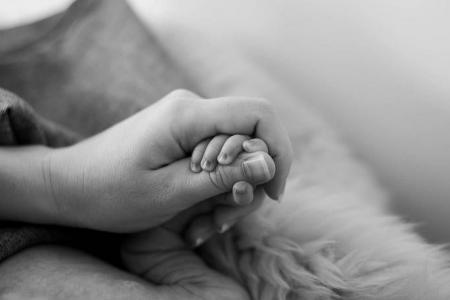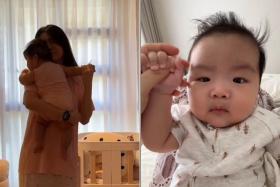Pregnant at 17, she was forced by her parents to marry the father of her baby
Anna started having sex at 15 and two years later, she was pregnant. Soon after, her parents forced her to marry her then boyfriend before the baby was born.
The pregnancy came as a shock because the couple used a condom, said Anna (not her real name).
They have since divorced. Her former husband, who was her first boyfriend, wanted her to get an abortion, but she would not hear of it.
“I wanted to keep the baby, as I was raised in a very religious household and I felt human life is very important,” she said. “To me, I was thinking, what are the chances of a condom failing? It (the pregnancy) felt like destiny.”
She started having sex when she was 15, as she felt she could not refuse her then boyfriend’s demands for sex.
“It just felt that I had to make him happy, or he would leave me,” she said. “Many of my friends say they don’t know if they like having sex, but they feel it’s more of an obligation and how a relationship should be.”
That was how Anna became a mother and a wife at the age of 17, while studying for a diploma in marketing.
Anna already had thoughts of breaking up with her then boyfriend, as she felt he was abusive. Then, she learnt she was pregnant.
She said that her parents pushed her to marry him so she would not have the child out of wedlock. He was three years older and also a polytechnic student then.
Anna agreed, as she felt she had no other choice.
Despite all her struggles, she pulled through those difficult years of juggling motherhood, studying and working.
Now 22 years old, she is working as an analyst in a multinational firm, and her daughter turns five in 2024.
The number of babies born to teenagers has halved in the past decade, and counsellors say this is largely because today’s teens are a lot more savvy about using contraception.
In 2022, 218 babies were born to teens aged 19 and younger.
This is fewer than half of the 487 babies born to teenagers in 2013, according to the Report of Registration of Births and Deaths 2022 published by the Immigration and Checkpoints Authority (ICA). The 2022 figures are the latest available.
Anna said she felt “very alone” throughout her pregnancy and in raising her daughter.
She has a strained relationship with her mother, who is often drunk and takes drugs. Her parents are divorced, although she has a good relationship with her stepfather.
She also found out her former husband cheated on her with her best friend after they tied the knot.
He hardly took care of their daughter, leaving Anna to be effectively a single mother. She had no financial support from him or her parents.
She had to work multiple jobs – on top of studying – to earn money to raise her daughter and put herself through school. She took on jobs such as telemarketing, conducting surveys and other work that could be performed remotely.
In the day, her daughter attended childcare when Anna was in school or working. At night, her neighbours, who are like family to her, helped to look after her daughter when Anna was too busy or tired.
“I was going through so much mentally and emotionally that I felt burnt out,” she said. “Being a mum, being a student, being a worker, and just showing up and giving my 100 per cent for everything.”
What got her through that period was support from Babes Pregnancy Crisis Support, a charity that provides support to pregnant teens.
Apart from counselling and emotional support, the group helped her practically by linking her up with other agencies that could provide aid and giving her baby items such as diapers and a pram.
Anna also had financial aid from the Government, and free food and other supplies from various community groups. A lecturer from the school she used to attend and her close friends are also part of her support network.
Her daughter gave her strength to keep going.
“I have found courage and resilience since I gave birth, and I was very determined to complete my diploma. I wanted her to be proud of her mum,” she said. “She has brought so many blessings to me.”
When she turned 21, she divorced her husband, as she did not want her daughter to grow up in a dysfunctional family like she did.
Anna has since remarried, and has a six-month-old son with her current husband.
She wishes that there are more open conversations for young people about issues concerning sex.
She said: “The sex education I had in school was very focused on abstinence, which I felt was not realistic, given that teens are very curious and they want to explore at that age. While sex education touches on contraception, I feel that they have to tell us more about reproductive health and how to handle difficult situations.”
She wants teenagers facing a pregnancy crisis to know that they are not alone.
“Even if you feel that your own family have turned their backs on you, there are people out there who will support you if you reach out (for help),” she said.
Get The New Paper on your phone with the free TNP app. Download from the Apple App Store or Google Play Store now


